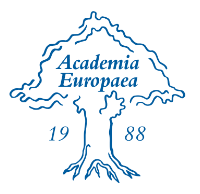Thematic Missions
Widening European Participation
Co-Chairs: Professor Éva Kondorosi and Dr Gergely Toldi
The historical gap in the research and innovation performance between EU-13 and EU-14 countries is still recognised and present. Therefore, broadening participation and cohesion in the European Research Area without undermining excellence is of key strategic importance and a priority for the implementation of the Horizon Europe 2021-2027 framework programme.
Several factors, both causes and consequences, have been identified that contribute to this gap. In order to improve collaboration between high- and low-performing European countries, immediate action to increase collaboration is needed.
Besides the imbalance in the distribution of the EU research and innovation funding, other signs of disproportion have also been identified. For instance, The Academia Europaea, as a pan-European academy, has the mandate to represent the finest of European academic achievement in the body of its individual membership. However, recent statistical analysis (https://www.ae-info.org/ae/Acad_Main/Membership/Statistics) performed by the Academia Europaea has confirmed that the representation of academic excellence is not adequately diverse and inclusive, especially in terms of geography, within its membership.
Similarly, the support mechanisms available for early career researchers (ECRs) is stronger in high-performing countries and suboptimal in low-performing countries, where this would be most needed. For example, the young academy movement, that has been gaining increasing impetus and visibility in the recent years and plays an important role in representing ECRs, is far more established in the EU-14 member states.
Brain drain and inadequate remuneration of researchers in low-performing countries also greatly contribute to disparities.
Several mechanisms have been proposed to address the above issues in order to create and utilize excellence regionally. The overarching principle is to maintain excellence while supporting low-performing countries/regions.
The AE Budapest Hub has developed a targeted programme to increase contribution to the above with a specific focus on the Danube region, but in close collaboration with other AE Hubs. Their activity will align with the recently founded working group of Academia Europaea on Widening Participation, facilitating top quality nominations for AE membership from geographically underrepresented areas of academic excellence.
The key missions of the programme within the Budapest Hub are to:
- Monitor the growth of AE membership from these countries, with a focus on the number of members, scientific domains/fields, and gender.
- Establish close collaborations with a representative AE member and an ECR from each Danube country to identify excellent candidates for AE membership and Young Academy of Europe (YAE) membership (with attention to ERC grantees and awardees of highly recognised international/national prizes).
- Identify the strength of countries and potential common scientific interests for setting up workshops and zoom meetings to find challenging common topics for COST and Horizon Europe applications (with special attention to the widening programs). Such workshops could be initiated and associated with the other three priority programmes of the AE-HAS Budapest Hub.
- Involve AE members in mentoring programs, from supervision to grant applications, to increase the success rate of ECRs at grant applications at the European level in the region.


